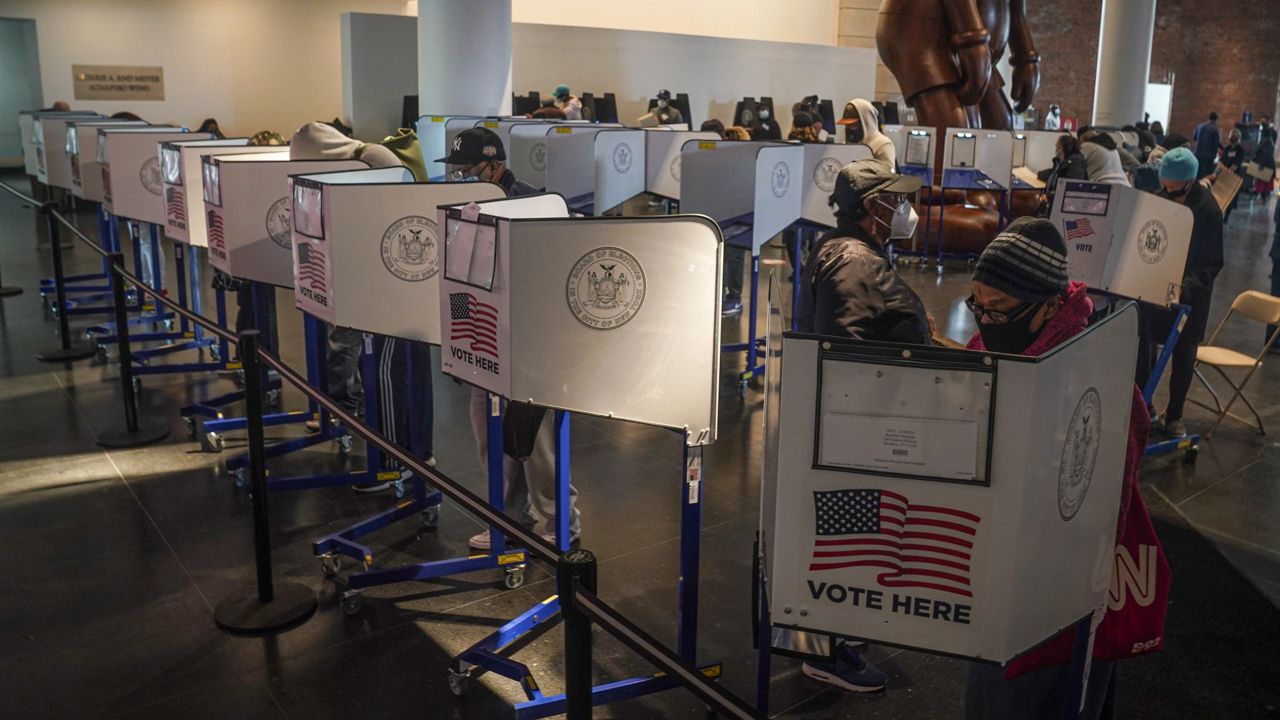The battle over voting rights sweeping the country in recent years is making its way to New York City as the City Council pushes legislation to give some non-citizens the right to vote in municipal elections.
On Monday, the council held a hearing on a bill that would allow nearly a million non-citizens with green cards or work permits to vote in city elections. The bill has the backing of immigrant groups and a majority of the council but faces skepticism from the de Blasio administration.
“We need to recognize the contributions of our immigrant brothers and sisters,” said Manhattan Councilman Ydanis Rodriguez, a main sponsor of the bill. “This is not about doing a favor to immigrants by allowing them to vote. If they pay their taxes, as I did when I had my green card, then they should have a right to elect their local leaders.”
The bill would allow lawful permanent residents or persons authorized to work in the U.S. who have lived in New York City for at least 30 consecutive days to vote in municipal elections.
This includes elections for mayor, comptroller, public advocate, borough president, council member and any city ballot initiative. Non-citizens would not be authorized to vote in state or federal elections.
“Most of us came to this country looking for a better future for our families,” said Assemblywoman Catalina Cruz, who represents Corona, Elmhurst and Jackson Heights, and testified in support of the bill. “We pay taxes. We send our children to our schools. We open up businesses. We ride mass transit and use our hospitals, just like you and I. But unlike you and I, they don't get to choose who represents them and their values.”
Non-citizen New Yorkers pay around $10 billion in taxes each year, Cruz said.
“This is taxation without representation, which stands contrary to the very principles on which our country was founded,” she said.
Critics of the bill, including Mayor Bill de Blasio, argue over the legal framework of expanding voting rights on a city level. However, his administration has not taken an official position on the proposed bill.
“I really believe this has to be decided at a state level according to state law,” de Blasio said last Friday on WNYC.
That reading of state law is shared by opponents of the bill.
“The question before us, in my view, is not whether this is the right thing to do, whether this is the wrong thing to do — the question is whether we, as the New York City Council, have the legal authority to do this,” Councilman Kalman Yeger who represents Bensonhurst, Borough Park, Gravesend, Kensington, and Midwood in Brooklyn.
While Yeger admitted this expansion of voting rights on a city level would not violate federal law, he said, “It is, however, unconstitutional because it violates the New York state constitution.”
He called on the state legislature to amend the constitution to expand voting rights instead.
Proponents of the bill pushed back, arguing that it’s not the role of legislative bodies to make calls on the constitutionality of certain policies.
“Having actually been a drafter for the City Council, I can tell you we often wrote bills that we weren't sure whether they were constitutional or not,” Cruz said. “But we knew that it was the right thing to do so we moved them forward because it was the right thing to do.”
Cruz also pointed to municipalities in places such as Maryland and Massachusetts that currently offer voting rights to non-citizens
However, there’s concern over how the Board of Elections, an agency plagued by calls for reform over the years and especially during the problem-filled roll-out of ranked-choice voting this year, would handle changes that would require them to differentiate between two sets of voters.
“The Board of Elections is in urgent need of reform and allocating responsibilities for non-citizen voting to an institution that is unreliable and unaccountable raises serious concerns especially as it relates to privacy, discrimination and legal consequences,” Laura Wood, de Blasio’s chief democracy officer in charge of increasing voter participation and civic engagement in NYC, said.
Officials from the Board of Elections, however, emphasized the agency’s ability to adapt to such changes.
“Despite public colloquy, we have handled a lot in the last year and a half with the pandemic and legislative changes including remarkably the expansion of absentee balloting process,” Board of Elections executive director Michael J. Ryan said.
But the Board of Elections did acknowledge it would have to contend with potentially confusing logistical issues like having to issue two different ballots when they include city, state and federal elections.
Ryan, however, referenced the agency’s handling of non-citizens voting in school board elections as an example of how the agency could implement the current proposal.
“Of course there are challenges when you’re maintaining two systems as opposed to one, but it has been done before and, from an operational perspective, there is absolutely no reason to think it cannot be done again,” he said.



